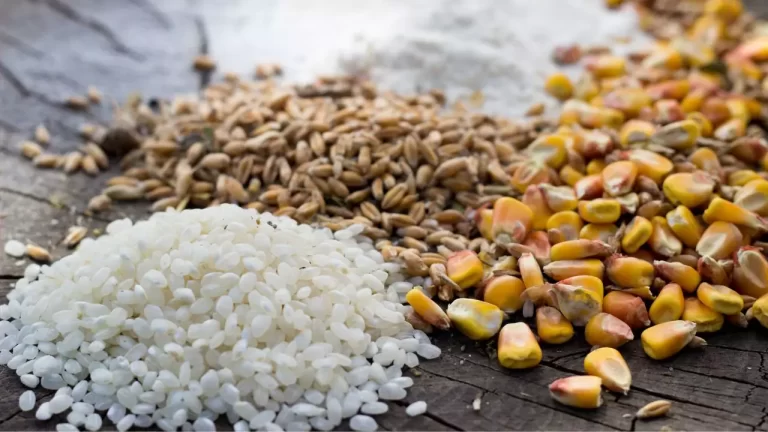No. While grain-free cat food has some benefits, it is optional or ideal for all cats. The decision should be made carefully based on each cat’s individual needs.
Understanding Grain-Free Cat Food
What does grain-free mean?
Grain-free cat foods do not contain any grains or grain by-products like corn, wheat, rice, oats, or soy. They use alternative carbohydrate sources like potatoes, peas, lentils, or tapioca.
Grains in cat food
Grains are inexpensive sources of carbohydrates, protein, and fiber added to many commercial cat foods. Corn, wheat, rice, and soy are commonly used.
Grain by-products
By-products like corn gluten meal are occasionally added too. They provide extra protein from grain processing.
Debunking Grain-Free Myths
Is all grain-free cat food gluten-free?
No. Gluten comes from wheat, barley, and rye. So grain-free foods with oats or millet still contain gluten. Checking labels is important for gluten-free diets.
Are grain-free diets dangerous for cats?
There are some concerns about grain-free diets increasing heart disease risk in dogs, but there is no evidence showing this effect in cats. However, if overused long-term, grain-free foods with legumes like peas and lentils may be linked to heart disease.
Do cats need grain-free food?
No. Grains are not inherently bad for cats. Many tolerate them well. As strict carnivores though, cats lack specific carbohydrate needs.
Cats with grain allergies
For the small subset of cats with grain allergies or sensitivities like corn or wheat, a grain-free diet can help relieve symptoms like itching and gastrointestinal issues. An elimination trial may be needed to diagnose.
Considering Grain-Free Cat Food
Benefits of grain-free cat food
- Helps cats with grain allergies or intolerances
- May improve digestion for some cats
- Often higher in meat-based protein
Factors to consider when choosing cat food
- Known food allergies or intolerances
- Overall diet requirements – kittens, seniors, medical needs
- Preference for meat-based proteins
- Budget and cost constraints
Consulting with a veterinarian
Talk to a vet before switching foods, especially for kittens or cats with medical conditions. They can recommend an optimal diet that meets the cat’s needs. Trial slowly transitioning foods for the best chance of acceptance. Monitor the cat’s health on any new diet.







